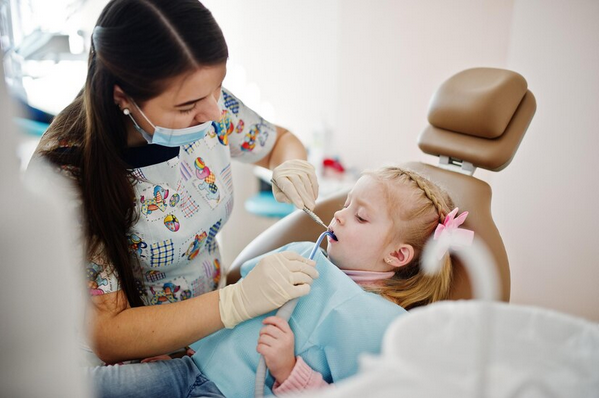Dental hygiene plays a crucial role in overall health and well-being, especially during childhood when oral habits are formed and teeth development is ongoing. Educating children about proper dental care not only promotes good oral health but also sets the foundation for lifelong habits that can prevent dental issues in the future. This article explores why dental hygiene education for kids is essential, the key aspects of such education, and practical tips for parents and educators.
Understanding Dental Hygiene
1. What is Dental Hygiene?
Dental hygiene refers to the practice of maintaining clean teeth and healthy gums through regular brushing, flossing, and dental check-ups. It also includes awareness of proper nutrition and habits that promote oral health.
2. Why is Dental Hygiene Important for Kids?
- Prevention of Dental Issues: Teaching children proper oral hygiene habits from a young age helps prevent common dental problems such as cavities, gum disease, and bad breath.
- Overall Health Impact: Oral health is linked to overall health. Poor dental hygiene can contribute to systemic conditions like diabetes and heart disease later in life.
- Positive Self-Esteem: A healthy smile boosts confidence and self-esteem in children, affecting social interactions and academic performance.
Key Aspects of Dental Hygiene Education
1. Brushing Techniques
Teaching children the correct brushing technique, including how long to brush and how often (at least twice a day), ensures effective plaque removal and prevents tooth decay.
2. Importance of Flossing
Emphasizing the role of flossing in cleaning between teeth and along the gum line helps prevent cavities and gum disease in areas where toothbrushes can't reach.
3. Nutrition and Oral Health
Educating kids about the impact of sugary snacks and drinks on teeth helps them make healthier food choices that promote dental health.
4. Regular Dental Check-ups
Stressing the importance of routine dental visits for professional cleanings and early detection of dental issues reinforces the value of preventive care.
Practical Tips for Parents and Educators
1. Lead by Example
Children learn best by observing adults. Demonstrating good oral hygiene habits yourself reinforces their importance.
2. Make Oral Care Fun
Use age-appropriate tools, songs, and games to make brushing and flossing enjoyable and less of a chore for children.
3. Educational Resources
Utilize books, videos, and online resources designed for kids to explain dental hygiene concepts in a fun and engaging manner.
4. Establish Routine
Consistency is key. Establish a daily oral hygiene routine that becomes a natural part of the child's day-to-day activities.
Benefits of Early Dental Education
- Long-Term Oral Health: Children who receive early dental education are more likely to carry healthy oral habits into adulthood, reducing the risk of dental problems.
- Cost Savings: Prevention through education and regular dental visits can potentially save families from costly dental treatments for preventable conditions.
- Overall Well-Being: Good oral health contributes to better overall well-being, including improved school attendance and performance.
Conclusion
dentist for children hygiene education for kids is not just about teaching them to brush and floss—it's about instilling lifelong habits that promote health and well-being. By educating children early on about the importance of oral hygiene, we empower them to take responsibility for their dental health and set the stage for a brighter, cavity-free future. Parents, educators, and healthcare providers all play crucial roles in fostering a positive attitude towards oral care and ensuring that every child has the knowledge and tools needed for a healthy smile.
By emphasizing preventive care, regular dental check-ups, and making oral hygiene fun and engaging, we can equip children with the skills they need to maintain healthy teeth and gums throughout their lives.





Comments